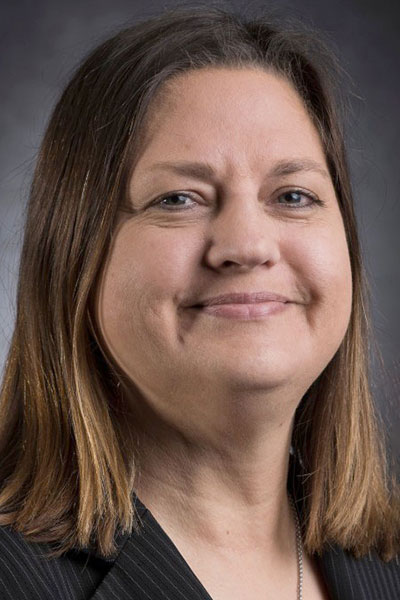A Texas telehealth program is expanding access to medical forensic exams for patients in rural areas seeking care after a sexual assault.

“What we’re doing is connecting our sexual assault nurse examiner experts via telehealth, and we’re calling them teleSANEs,” said Kim Zemanek, the associate program director for Texas Teleforensic Remote Assistance Center at the Texas A&M University School of Nursing. “We’re connecting them with a hospital clinician in rural hospitals to help when they receive patients who have experienced sexual assault trauma to keep that patient in their own community and be able to guide the nurse in that hospital to do the medical forensic exam via telehealth.”
Zemanek will present an overview of the trauma-informed care model used by Tex-TRAC in “Guiding Emergency Room Nurses Through Sexual Assault Exams Using Telehealth.” The Sunday session will be presented live in the Four Seasons Ballroom and livestreamed at 3:30 p.m.
While the COVID-19 pandemic rapidly pushed telemedicine toward the forefront of health care, development of Tex-TRAC had begun before the pandemic.
The Office of the Attorney General of Texas selected the Texas A&M School of Nursing to establish the telehealth program utilizing SANEs to support health care entities in underserved areas where nurses do not have a forensic nursing background and lack much formal training in trauma-informed care.
With federal funding, the school in 2019 brought together a team of experts, including engineers, telebehavioral experts, forensic nursing faculty and staff, and sexual assault survivors, to create a program that deploys a telehealth cart with specially designed software to its participating sites.
“We started working together to see how we can make this a better process for the patient,” Zemanek said. “By taking a cart into the community, we keep that patient in their community so they don’t have to incur more trauma, such as traveling three and a half hours to the closest SANE program, or incurring extra charges for an ambulance ride there.”
Since the first Tex-TRAC site went live in February 2021, six more sites have been established.
During her presentation in Denver, Zemanek will discuss best practices for trauma-informed care and how to make connections with patients who present at the emergency department after being the victim of a sexual assault.
“When we go into a community, we do a community launch where we involve law enforcement, the DHS office, the defense attorney’s office, the first responders. If it’s in a community that also brings prisoners who have been sexually assaulted, then we include the prison officials that are a part of it. That way everybody knows and is on board to help this patient,” Zemanek said.
Follow-up care may include prescriptions and mental health care.
“We want to make sure the patients are completely taken care of. We want to make sure they have the proper follow-up with advocacy,” Zemanek said.
Register Today for Emergency Nursing 2023
Registration for Emergency Nursing 2023 is still open! Level up with ENA and thousands of your emergency nursing peers in sunny San Diego on Sept. 21-23. Attendees can look forward to immersive experiences with hands-on learning opportunities, high-quality sessions, networking events and can’t-miss celebrations sure to propel their careers onward and upward.

